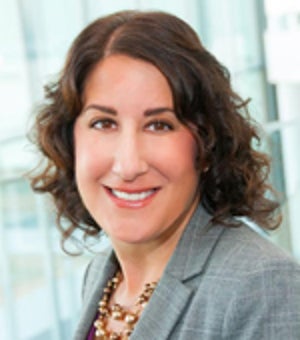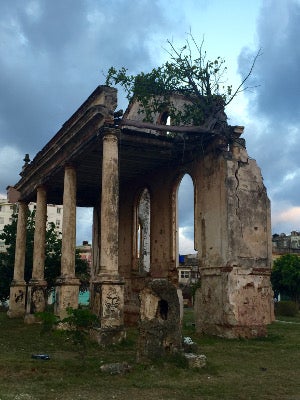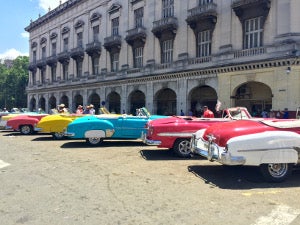LENS Campus
An Ambassador for Education
CWRU Research Leader Suzanne Rivera Forges Ties with Cuban Universities

Suzanne Rivera, vice president for research
In May 2015, Case Western Reserve's Suzanne Rivera traveled to Cuba as part of a delegation exploring potential collaborations that could develop if the U.S. trade embargo is lifted. Rivera—the university’s vice president for research and technology management, a Cuban-American and a board member of the National Council of University Research Administrators (NCURA)—was so “jazzed” about the possibilities that she later made an unscheduled visit to the newly reopened Cuban embassy in Washington, D.C.
What inspired you to visit the embassy?
I was attending NCURA’s annual meeting [in Washington], which, by coincidence, was just three months after my first Cuba trip. I urged the group to lead the effort to provide professional development training to our counterparts in Cuba. The leadership of NCURA said, “We think this is a great idea, but how would you imagine we move forward?” I said, “I know this is a crazy idea, but I’m going to get in a cab and just go down to the embassy and see if I can get anybody to talk to me.”
 PHOTO: Suzanne Rivera
PHOTO: Suzanne RiveraDuring a walk in the city's Vedado neighborhood, Rivera came across a series of broken-down buildings, including this one.
There was a big wrought-iron gate in front, and I hit the buzzer. I explained [in Spanish] why I was there. They buzzed me in. They were putting the embassy back together because it had been shuttered for 50 years. There were still sheets draped over furniture. It just so happened that one of the deputy ambassadorial staff for educational initiatives was there and available. I stayed for over an hour. I told him about NCURA, my life-changing trip the previous May and what a transformative experience it was to see the island with my own two eyes, talk with the people there and see where my dad grew up.
Your dad was born in Cuba?
Yes, in Havana. My mom was born in the U.S. I was born in New York City.
How did he end up in the United States?
He and his brother were among about 14,000 Cuban children airlifted to the United States after the [1959] revolution. He was 14. Parents thought the revolution would last about a year before it got squashed, and they would get their kids back and return to their regular lives. My dad and his brother were here for two years before their parents could sneak out.
 PHOTO: Suzanne Rivera
PHOTO: Suzanne RiveraDuring her 2015 trip to Havana, Suzanne Rivera spotted the line of classic cars parked in front of the Capitolio Nacional (capitol building).
In general, my generation of Cuban-Americans has a much more nuanced view of this [issue] and thinks that opening up relations with Cuba is actually the likeliest way to see change happen on the island.
You’re part of the NCURA team that negotiated a memorandum of understanding last fall with the Cuban Ministry of Higher Education for research and educational partnerships. What would the U.S. and Case Western Reserve potentially gain from the relationship?
I think we have a lot to learn from Cuba about medicine—especially global health. For example, there’s virtually no Zika virus in Cuba because they have done an excellent job of preventing the spread. They have a lung cancer vaccine that we don’t even have access to in the U.S. Cuba’s government also has invested extensively in the humanities and the arts. It’s impressive what they’ve been able to do despite the limitations of the embargo. The next thing I'll be working on is a workshop that other NCURA colleagues and I will conduct in Havana next year to help Cuban universities build their capacity for research collaborations and grant writing.
If this effort progresses as you hope, what do you envision 10 years from now?
I would love to see students and faculty go on exchanges back and forth. I would love to see research collaborations in medicine, in agriculture, in the humanities and performing arts and in the social sciences unfettered.





